Ezra Claytan Daniels is breaking the idea of what comics can be
Ezra Claytan Daniels made one of the splashiest comics debuts in recent memory. His book Upgrade Soul — a high-concept sci-fi novel about cloning, the pursuit of eternal life, the concept of the self, and love — was nominated for just about every major award in the comic book business. And his gentrification horror story BTTM FDRS was published this summer by Fantagraphics to great acclaim. Last week, Daniels debuted an app version of Upgrade Soul and a soundtrack album for the comic. I spoke on the phone with him about genre, the limitations of comics, his new political minicomic, and why he enjoys Seattle's own Short Run Comix & Arts Festival, where he will be exhibiting on Saturday, November 9th.
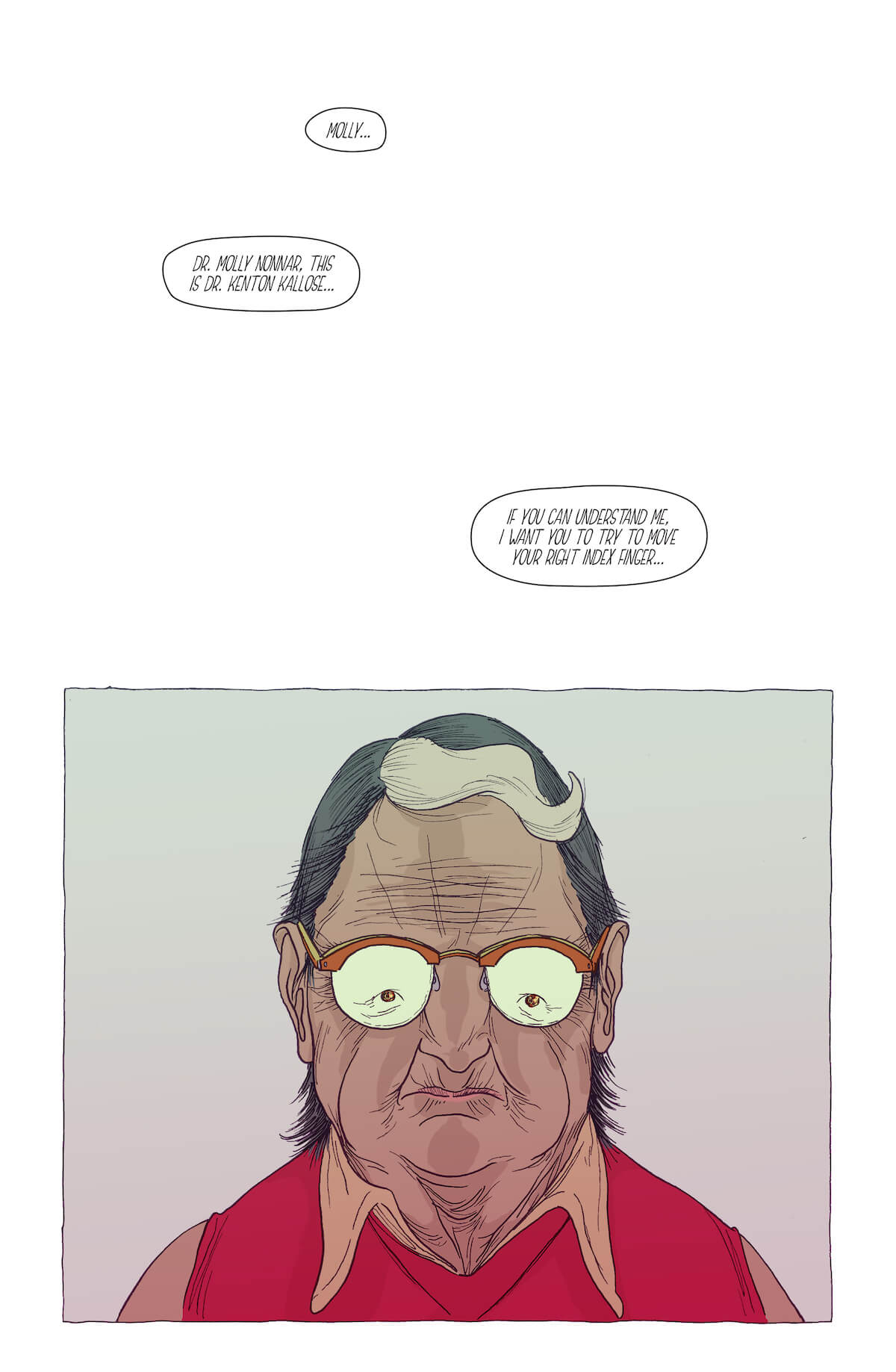
Have you been to Short Run before?
Yeah, I went once before. I went last year, and I squatted on Ben Passmore's table. He was a special guest and we were on tour so we happened to be going through Seattle and he carved out a little corner for me on his table and I set up some books and sold them.
Okay. And even though you were basically stealing money from Short Run by squatting at someone else's table, they asked you back?
Yeah, totally.
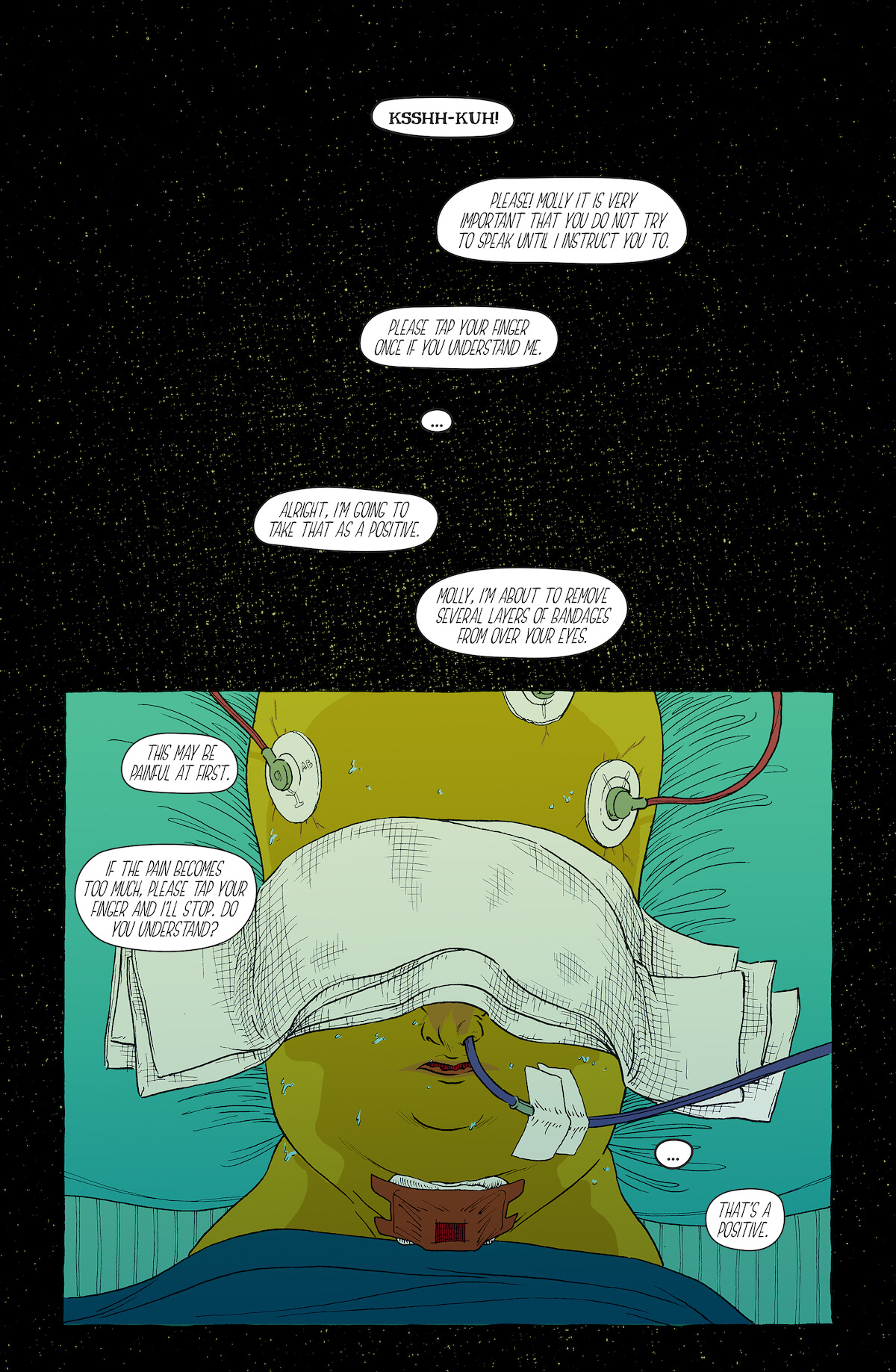
Is there anything that's unique about Short Run that convinced you to come back one year later?
I love Seattle. I lived in Portland for six years, and I have a lot of friends in the Pacific Northwest, so any excuse to come back up in the area, I always jump onto it.
I also really like that Short Run's only a day, so it makes it a lot easier to commit to, if I want to spend some time seeing people that I know in the city that I'm visiting. Some shows, like New York Comic Con and San Diego Comic Con are four or five days long. Who can take that much time away from their responsibilities to go to a show that's that long?
And also I saw that you're going to be bringing a new sort of small press book to Short Run. Can you talk about that one a little bit?
I'm not very good at talking about it, but it's a nonfiction political essay that I wrote with the intent to communicate certain moralistic and philosophical political ideals to problematic white people.
All the comics that I do have a very strong sociopolitical agenda beneath the genre trappings that I candy-coat these ideas in. But I started to feel really disenchanted with that approach, because I felt like it was really easy for people to take the wrong message from things that are too obfuscated through genre conventions.
So if you take the X-Men, for example: The X-Men were designed as a civil rights allegory — which everybody knows and everybody loves to bring up when we talk about the history of political agendas in comics. But it's so easy when the X-Men, the actual team, are almost all cast as white people for white readers reading those books to take away the lesson, not that black people and minorities are oppressed, but that white people are oppressed.
So I was trying to think of ways to communicate ideals a little bit more directly. And so I came up with this zine that kind of explores the narrative origins of empathy and the evolutionary origins of narrative — why we, as humans, try to wrap all of our life's experiences in narrative terms; and how that narrative worldview shapes our perception of empathy; and then why it's easier for us to feel empathy for some people than others.
It was one of the hardest things I've ever done. It took me forever to do it. It's like 60 pages, but each page is one panel so it's actually a pretty short book. But I asked a couple of leading psychologists to consult with me on the book, so I got their feedback: Adam Waytz [author of The Power of Human] and Paul Piff who did the rigged Monopoly study that became a viral TED Talk.
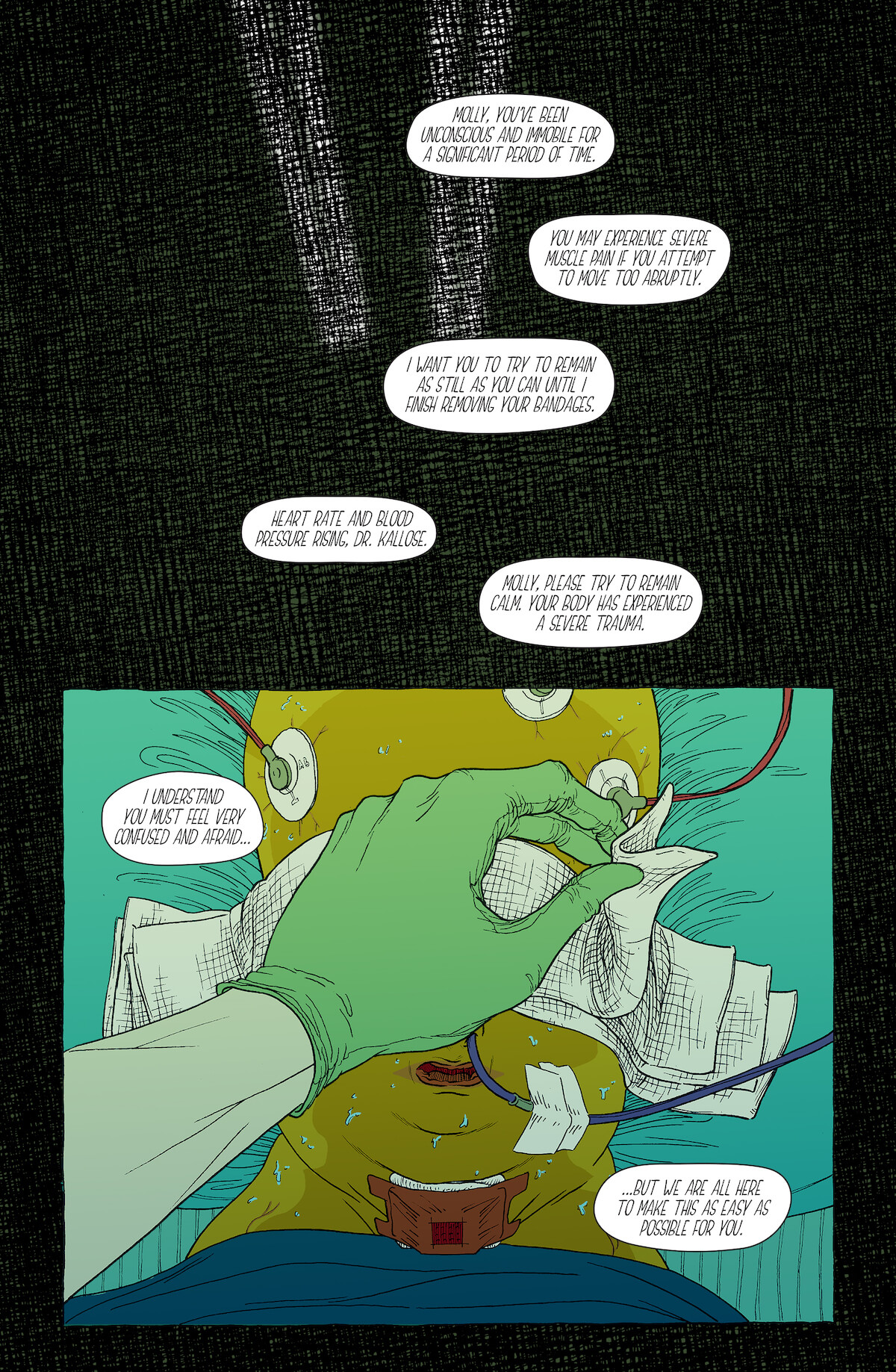
Wow. I can't wait to read that one, because the first thing that comes to mind for me with the combination of politics and comics are the old Steve Ditko Objectivist rants—
I'm not familiar with those.
Oh no? He did a bunch of black and white comics that were about objectivism on Ayn Rand and...
Oh, okay.
Kind of the opposite of what you're doing, sounds like. They're about how there's no society, there's only the individual and there's lots of illustrations with big spheres with mouths talking to men in suits and the men in suits cast the spheres aside. They represent the voice of doubt, or society.
Wow. Sounds great.
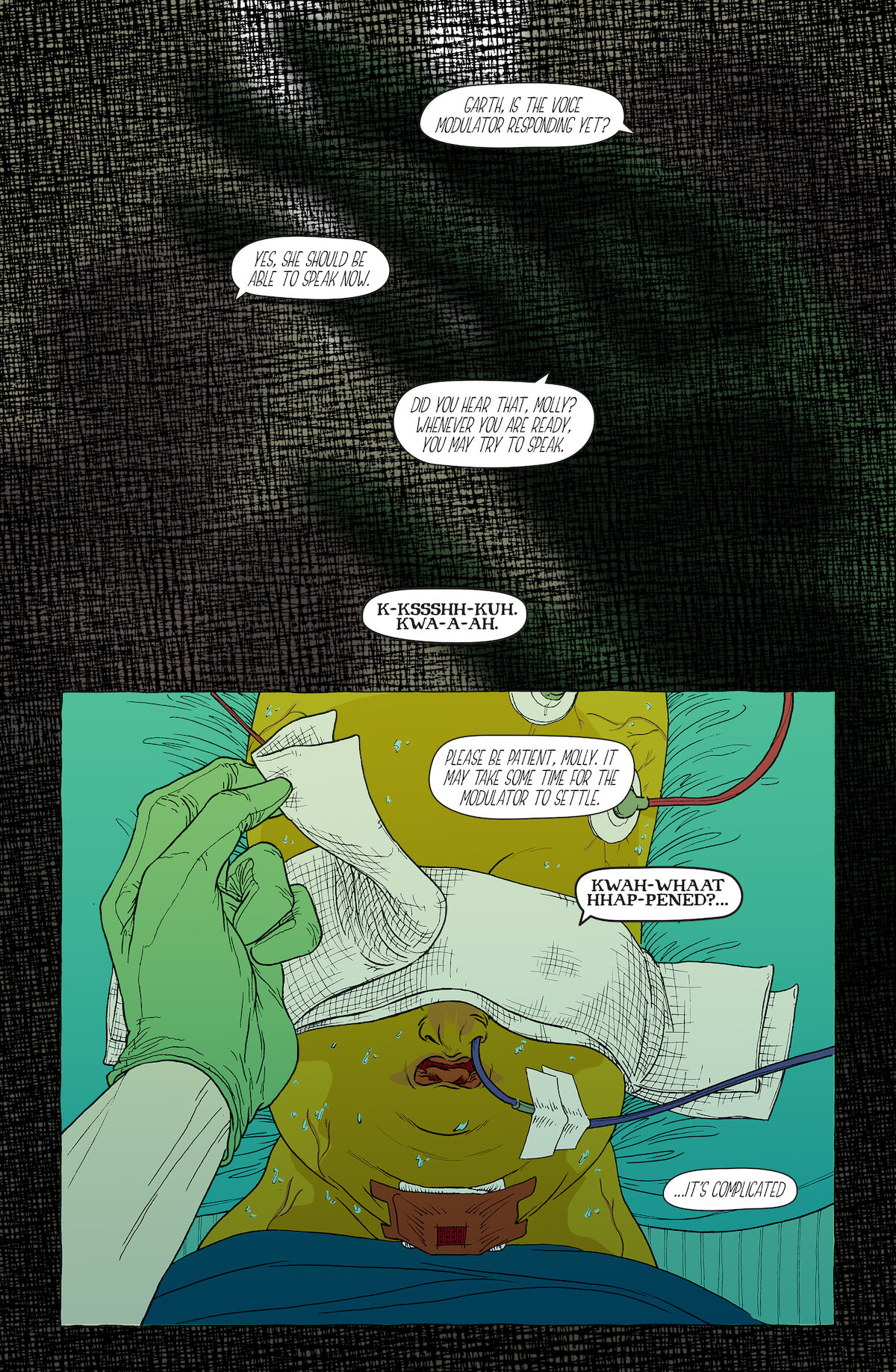
They're very interesting. They're hard to read and they're a little bit bonkers, but I don't know of any other people who have done things like this in comics form. Is it okay to call it a polemic, or what is it exactly? Do you know?
I'm not even really sure what to call it. I'm not huge on labels, so whatever people want to call my stuff, I'm fine with it. I'm not going to claim to have created a format. I think I'm looking to things like The Nib, which is a good example of an approach to political comics that isn't reporting current events, but adding kind of a subjective perspective on some of these ideas.
Yeah.
But the central idea is to create something that's super-palatable, it's super-easy for people to understand, but it's still got some intellectual depth to it, so it'll give people something to think about.
I'm a biracial artist, I'm half Black and half white. And I feel like I'm in a very unique position because of my ethnic background to communicate some of these ideas to my white family members, specifically.
I just feel like I'm kind of preaching to the choir sometimes. When I do shows like Short Run — I mean, I love Short Run and other shows like Short Run; these are the people that I want to spend my time with. But selling a book like BTTM FDRS, which is a very political book, to people that come to Short Run is not really communicating these ideas outside the circle of people that already feel the same way that I do.
I'm sorry, but I hadn't read Upgrade Soul, until I found out we were going to do this interview, but I loved it.
Oh, great. Thank you.
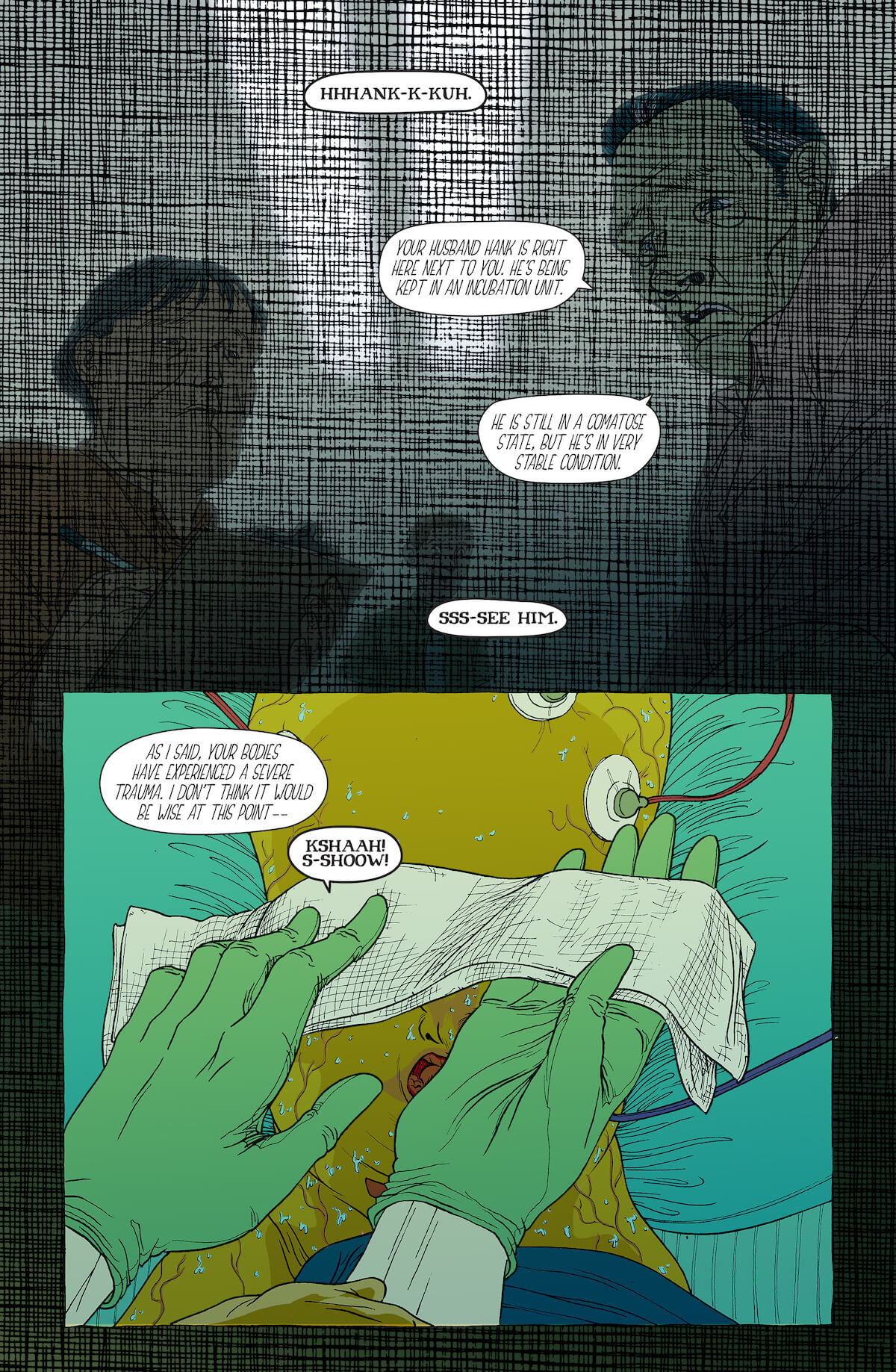
And I really liked the way you use genre. You could write a description of the book that sounds very much like a mainstream commercial comic, and then you made it a very sort of deep and thoughtful and fascinating and squirmy story that I just really dug. Can you maybe talk a little bit more about how you feel about genre? It seems like it cuts sort of both ways, right? You're injecting these sort of deeper ideas into genre, but you're also sort of smuggling genre into a different audience a little bit, right? I don't think that Fantagraphics, for instance, has published a whole lot of genre work before BTTM FDRS.
Yeah, I guess I never thought about that. I'm fighting the good fight of spreading genre ideals into a highbrow literary crowd.
It does go a little both ways. You're smuggling on both sides.
Yeah, totally. I'm cut from the Rod Serling cloth in trying to do stuff in the tradition of creators that were using genre as a Trojan horse to disseminate their political ideals. But I am starting to feel a little bit disenchanted with that approach because it's so easy to get things wrong.
So I don't know what the future of my career looks like. I like working in genre because I just love science fiction and horror. So I think in doing a story like BTTM FDRS, there are very real ideas that I wanted to get across in that book. And I think a big part of slathering those ideals in horror and sci-fi and comedy is just because it was easier on my mental health to go to those places. I can play around in this fun sandbox of toys rather than a sandbox of library books and political essays.
Of course, the book's been out for a little bit and now it's got this interesting second life in the form of an app and a soundtrack. One of the things that really draws me to comics is the way that it sort of puts time in the hands of the reader in an interesting way, right? Of course, there's the page turn, which cartoonists use to create suspense or surprise or something like that, but there's a lot of internal work that happens when you're reading a comic. You can control the timing and the tempo of the comic as a reader in a way that you can't when you're watching a movie. It seems like as a creator you're maybe taking some of that back a little bit in an interesting way. The characters in the app blink and the word balloons sort of appear and disappear. Can you talk a little bit about your relationship, whether you see this as changing the idea of time in the reader/artist dynamic in comics?
The answer is absolutely not. The developer, Erik Loyer, and I, went through painstakingly long discussions. Just from talking to me for the past 15 minutes, I'm sure you can imagine the type of discussions I was getting into with Erik, the developer, about the definition of comics and how far we should take advantage of the technology at hand before it stops feeling like reading a comic.
"The thing that defines comics, just like the thing that defines prose, is the reader's control of the element of time."
And you got it exactly right: The thing that defines comics, just like the thing that defines prose, is the reader's control of the element of time. So as soon as something happens in a digital piece that the reader doesn't control, like anytime there's movement in a panel or something animates, or someone speaks, or even if there's a literal sound effect like a tire screeching as a car pulls away, it's a jarring effect to the reader because it's something that's indicative of time that the reader hasn't controlled.
Okay.
And putting together the dynamic of reader interaction for Upgrade Soul, that was our golden rule that we could not deviate from. That said, there are things in the app like the blinks, that we threw in, that totally go against that rule. But people thought it was really funny and weird, so we kept it in. And this is a little secret: The blinks only happen in the first 20% of the book, and then, after that, the characters stop blinking.
But other than that, the main hook of the app is the reactive score [composed by Alexis Gideon] and that also adheres to the same tenets of control of time that the comic book does. So as you're swiping through the panels, every panel transition triggers a change in the music. The music keeps perfect time with every emotional beat in the story, so you're controlling the music in the same way that you're controlling your pace through the story.
That sounds amazing. I'm glad you put such thought into it. The mainstream publishers have done some — they call them motion comics, usually.
Yeah, totally. And those things never catch on because they always come across being like crappy animated films. As soon as something moves and it doesn't move with the fidelity of an actual animation, it sets up this reaction in the reader: "oh, that moved but it was really crappy looking."
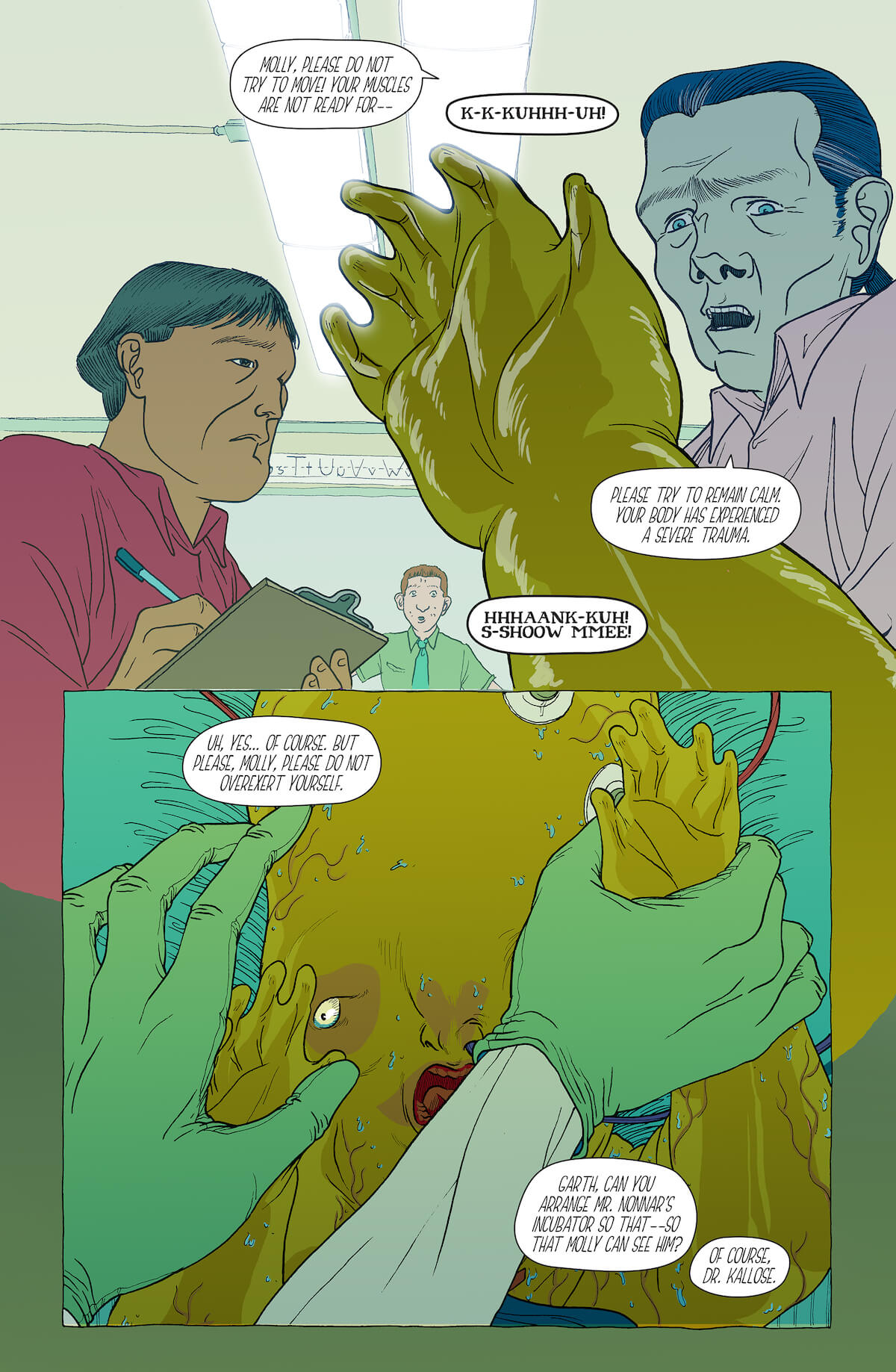
Do you have a preferred reading experience for the story? The app or the printed comic?
It's a very complicated history, but Upgrade Soul was originally developed for the interactive app. It was developed for the app that we just launched. The entire thing has been a self-funded project. We launched it in 2012 with the intent to serialize it, so we would release a new chapter every couple of months. We got about halfway through updating the story and then we just put it on hiatus because we weren't making enough money on it and we were bankrolling it out of pocket.
I kept working on the book and then, when I finished it, I sold it to Lion Forge Comics. But I carved out the interactive rights because I always knew I was going to come back and finish the app. So since Upgrade Soul came out as a book last year and got all this attention, it seemed like the perfect time to try to bring it back.